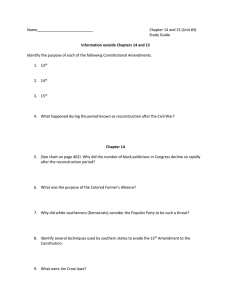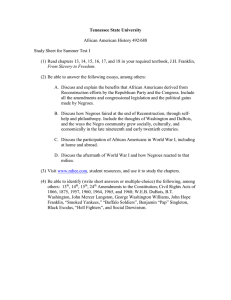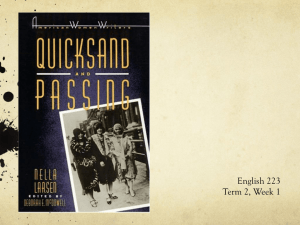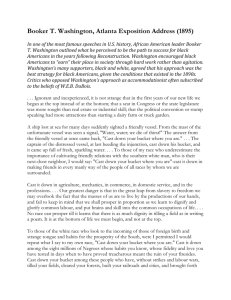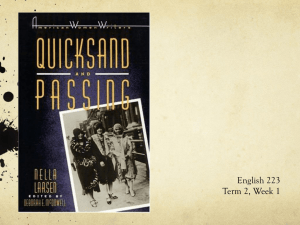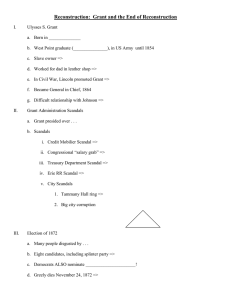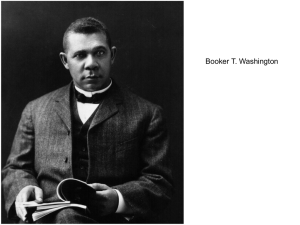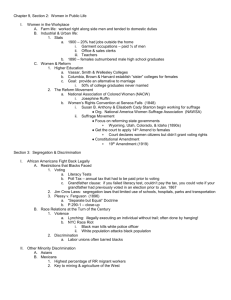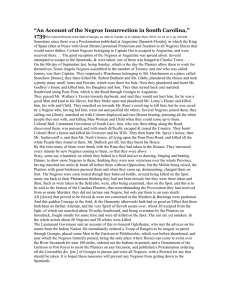African Americans at the Turn of the Century
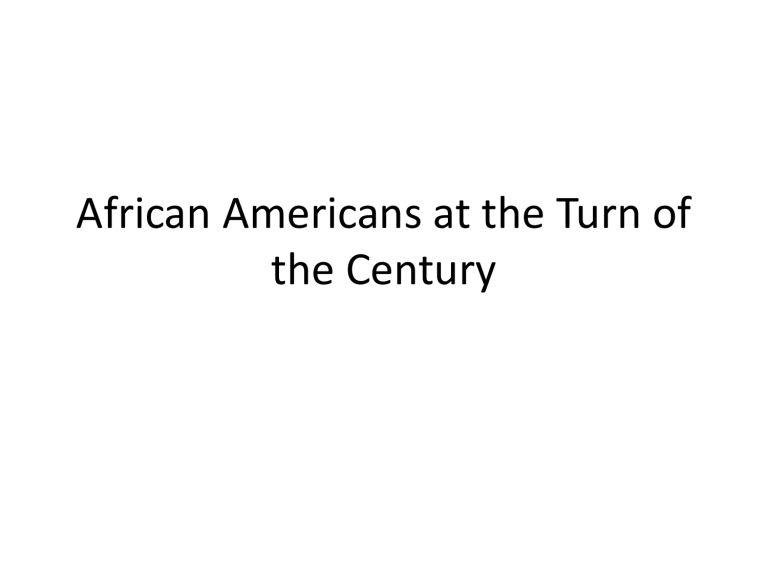
African Americans at the Turn of the Century
The United States After the Civil War
Reconstruction
(1865-1877)
• The federal govt, state govts, organizations and many individuals attempted to help blacks transition from slavery and become free citizens
– 13 th -15 th Amendments
– Civil Rights Act of 1866
– Freedman’s Bureau
• But many white Southerners also struggled with accepting defeat and racial equality
Limits for Reconstruction
• The KKK and sharecropping emerged as ways to prevent
African Americans from progressing
• The end of Reconstruction brought voting restrictions, segregation and increased violence against blacks
(especially in the South)
Sharecropping
Black Activists- Booker T. Washington
“Atlanta Compromise Address,” 1895
To those of the white race who look to the incoming of those of foreign birth and strange tongue and habits for the prosperity of the South, were I permitted I would repeat what I say to my own race, “Cast down your bucket where you are.” Cast it down among the eight millions of
Negroes whose habits you know, whose fidelity and love you have tested in days when to have proved treacherous meant the ruin of your firesides. Cast down your bucket among these people who have, without strikes and labour wars, tilled your fields, cleared your forests, builded your railroads and cities, and brought forth treasures from the bowels of the earth, and helped make possible this magnificent representation of the progress of the South. Casting down your bucket among my people, helping and encouraging them as you are doing on these grounds, and to education of head, hand, and heart, you will find that they will buy your surplus land, make blossom the waste places in your fields, and run your factories. While doing this, you can be sure in the future, as in the past, that you and your families will be surrounded by the most patient, faithful, law-abiding, and unresentful people that the world has seen. As we have proved our loyalty to you in the past, in nursing your children, watching by the sick-bed of your mothers and fathers, and often following them with tear-dimmed eyes to their graves, so in the future, in our humble way, we shall stand by you with a devotion that no foreigner can approach, ready to lay down our lives, if need be, in defense of yours, interlacing our industrial, commercial, civil, and religious life with yours in a way that shall make the interests of both races one. In all things that are purely social we can be as separate as the fingers, yet one as the hand in all things essential to mutual progress.
…The wisest among my race understand that the agitation of questions of social equality is the extremest folly, and that progress in the enjoyment of all the privileges that will come to us must be the result of severe and constant struggle rather than of artificial forcing. No race that has anything to contribute to the markets of the world is long in any degree ostracized. It is important and right that all privileges of the law be ours, but it is vastly more important that we be prepared for the exercise of these privileges. The opportunity to earn a dollar in a factory just now is worth infinitely more than the opportunity to spend a dollar in an opera-house.
Black Activists- W.E.B. Dubois
The Souls of Black Folk ,1903
Is it possible and probable that nine millions of men can make effective progress in economic lines if they are deprived of political rights, made a servile caste, and allowed only the most meagre chance for developing their exceptional men? If history and reason give any distinct answer to these questions it is an emphatic No. . .
Such men, [the thinking classes of American Negroes] feel in conscience bound to ask of this nation three things:
1. The right to vote
2. Civic equality
3. The education of youth according to ability
…They do not expect that the free right to vote, to enjoy civic rights, and to be educated, will come in a moment; they do not expect to see the bias and prejudices of years disappear at the blast of a trumpet; but they are absolutely certain that the way for a people to gain their reasonable rights is not by voluntarily throwing them away and insisting that they do not want them; that the way for a people to gain respect is not by continually belittling and ridiculing themselves; that, on the contrary,
Negroes must insist continually, in season and out of season, that voting is necessary to modem manhood, that color discrimination is barbarism, and that black boys need education as well as white boys.
Black Activists- Ida B. Wells
“Lynch Law in America,” 1900
Our country's national crime is lynching. It is not the creature of an hour, the sudden outburst of uncontrolled fury, or the unspeakable brutality of an insane mob. It represents the cool, calculating deliberation of intelligent people who openly avow that there is an "unwritten law" that justifies them in putting human beings to death without complaint under oath, without trial by jury, without opportunity to make defense, and without right of appeal.
